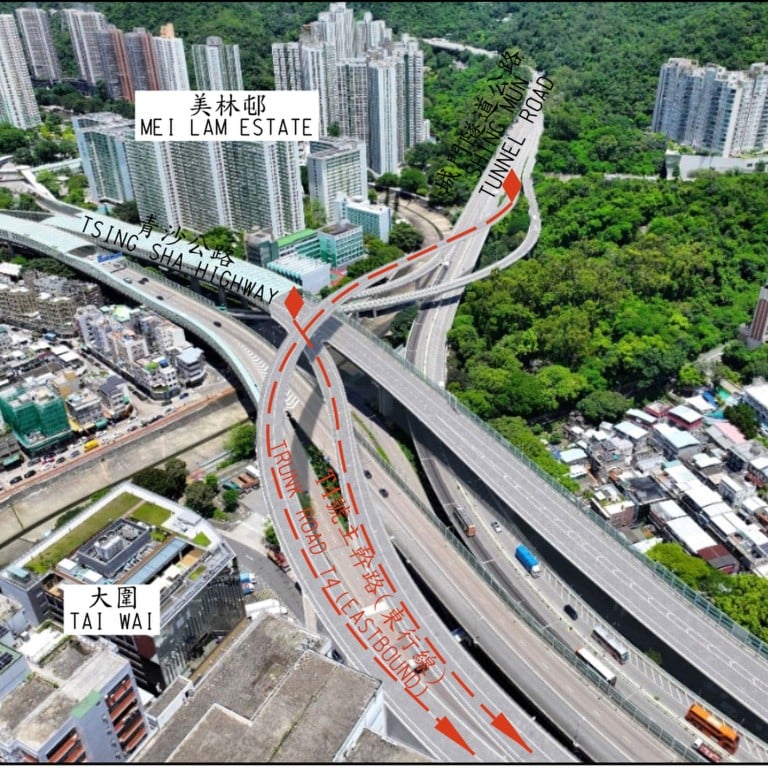
A welcome display of power as Hong Kong lawmakers check government funds request
- Scrutinising policies and questioning funding requests can help a Legislative Council full of ‘patriots’ shed the rubber stamp impression and act more as a check and balance on government
The passage of the domestic national security law freed up officials and lawmakers to focus on the city’s economic development. Chief Executive John Lee Ka-chiu has rightly pledged “full attention” to developing a “vibrant economy and a caring community”.
Infrastructure is fundamental to that goal. But within a day the transport authorities abruptly withdrew a HK$7.16 billion major highway funding request to the legislature on the eve of discussion of the proposal in Legco’s Finance Committee.
The reason given was the need to provide more information to lawmakers who questioned a blowout in costs from HK$1.1 billion in 2006 and the lack of a completion timetable. Otherwise, lawmakers’ approval of the proposal was problematic, given the likely numbers of votes against and abstentions.
Rejection would have been an embarrassment that a results-oriented government could do without.
More importantly, however, it showed that the Legislative Council cannot be assumed to have become a rubber stamp for the government.
Hong Kong authorities withdraw funding proposal for trunk road at last moment
There have been understandable concerns about that ever since membership was confined to “patriots” under electoral reforms imposed by Beijing, prompting questions at the time whether the authorities would be able to push bills through Legco without critical scrutiny.
The performance of lawmakers also came under scrutiny last year after a report that at least two-thirds of bills were passed in the previous year with less than half of all legislators present, falling short of the 45-member quorum requirement.
When it comes to major issues of principle, the government may expect lawmakers to be united in their support. But they should neither support the government blindly nor oppose it just for the sake of it or putting on a show of opposition.
Lack of lawmakers’ backing for the highway proposal as submitted may be a setback for the government, but good in a sense for Hong Kong.
It is a positive sign that lawmakers take a serious approach to scrutiny of funding requests. The government should not take it for granted that whatever proposal it tables in Legco will receive unanimous support from a “patriots only” chamber.
Lawmakers should be encouraged to scrutinise the government’s performance and funding requests diligently, especially now that there is a refocus on economic development and livelihoods.
If the resistance to passing the highway funding request without more information is truly representative of the new Legco, that is to be welcomed.
Because there is no longer an opposition, it is important for all lawmakers to play the role of providing a check on government’s exercise of power.
After all, that is what they are elected to do and there remains scope for questioning government policy.

